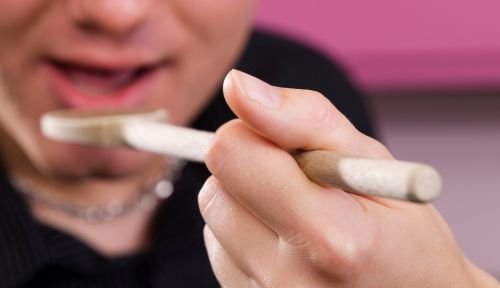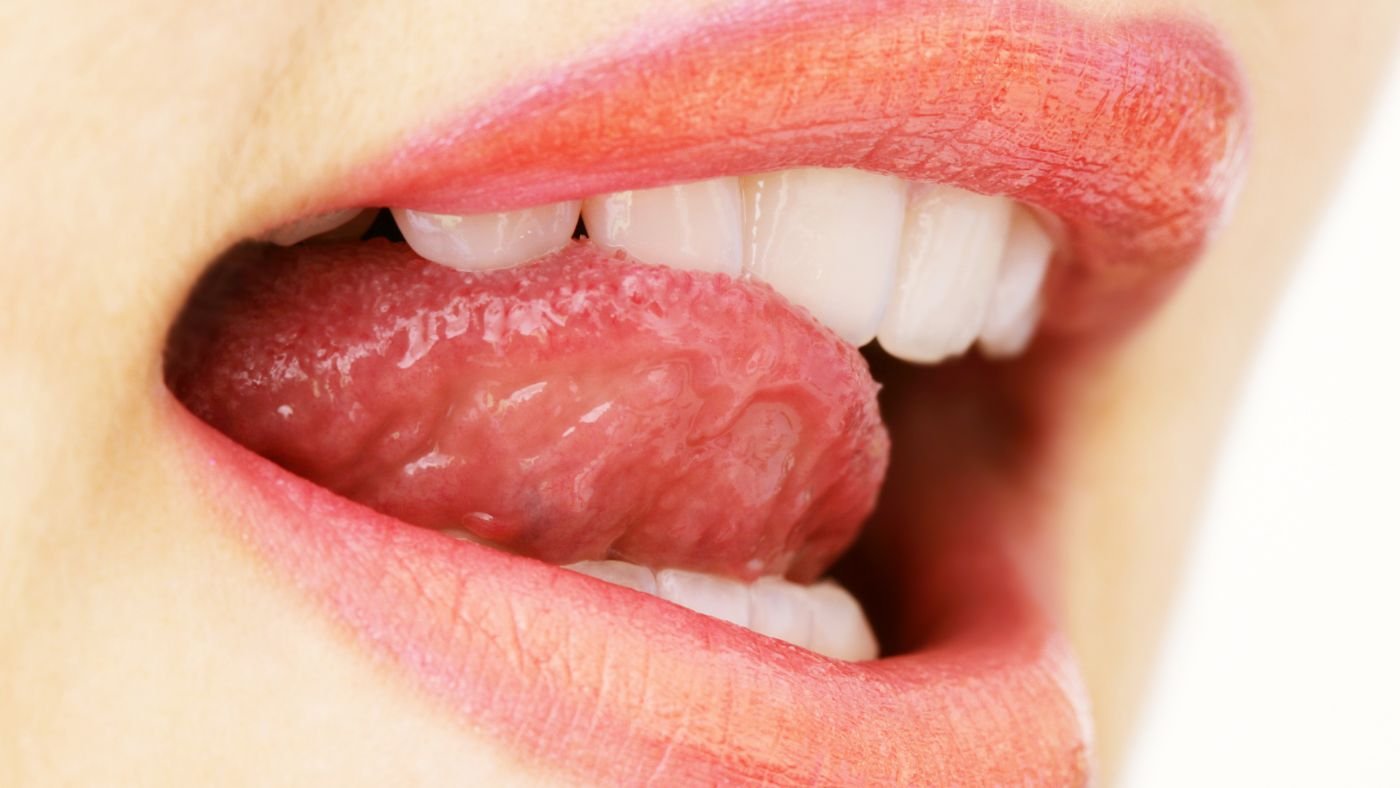The taste of metal in the mouth is felt and can cause many questions and concerns. This sensation, which is often associated with the taste of iron in the mouth, can occur for various reasons, starting from health problems and ending with the use of certain medications. It is important to emphasize how the complexity of our body, including the endothelial cell layer that regulates the passage of substances from the blood to the tissues, affects our perception of taste.1
In this article, we will discuss the causes of not only metal, but also a strange taste in the mouth, using links to health problems and providing prevention strategies to combat this unpleasant sensation. We will also look at nutrients that can help reduce the taste of metal in the mouth, emphasizing the importance of consulting a doctor for diagnosis and appropriate treatment tactics.
Causes of a bad taste in the mouth
The main reasons
- Poor oral hygiene practices - insufficient brushing and interdental brushing can lead to the accumulation of food particles and the development of bacteria, causing a metallic taste in the mouth.
- Diseases of teeth and gums – such as gingivitis, periodontitis and dental infections, which can cause inflammation and bleeding gums, also contribute to the metallic taste.
- Taking certain medications - for example, antibiotics, blood pressure drugs, cholesterol-lowering drugs and chemotherapy can cause a metallic taste as a side effect.
- Sinus and upper respiratory tract infections – these conditions can cause nasal congestion, which in turn can cause a metallic taste in the mouth.
- Hormonal changes - Hormonal fluctuations during pregnancy, menstrual cycle and menopause can cause a temporary metallic taste.
- Lack of nutrients - disadvantages such as iron, zinc and group B vitamins, may cause a metallic taste in the mouth.
- Chronic diseases – such as diabetes, kidney disease and reflux disease can also cause a metallic taste.
These reasons suggest that metallic taste in the mouth may be related to various aspects of health, including hygiene practices, medication use, and existing medical conditions.

Interesting facts about taste
The digestive system and the perception of taste
The digestive system does not have separate zones for different tastes, such as sweetness or bitterness. This means that taste receptors are located all over the tongue, as well as in the throat and palate, and not just in certain areas of the tongue, as previously thought.
Synesthesia: Perceiving taste differently
Some people have a condition called synaesthesia, in which one sensation is perceived as if through one or more additional senses. This can mean that taste can be perceived as a color or a sound.
The myth of the taste zones
The results of a 1901 study by David P. Hanig contributed to the misconception that different areas of the tongue are responsible for different tastes. However, modern research has shown that taste receptors are located all over the tongue.
The main nerves responsible for the perception of taste
Two main nerves are responsible for the perception of taste: the glossopharyngeal nerve at the back of the tongue and the chorda tympani nerve at the front. These nerves transmit taste information to the brain.
Molecular biology and taste perception
Modern molecular biology has established that sweet and umami taste receptors are the same. This challenges the old concept of the tongue map, according to which different areas of the tongue are responsible for different tastes.
Health Problems Linked to Metallic Taste in Mouth
The Relationship between Metallic Taste in the Mouth and Health Problems
A metallic taste in the mouth, known as dysgeusia, can be associated with a variety of health problems and indicate that certain processes are occurring in the body that may have long-term consequences. For example, the COVID-19 virus can cause long-term damage to the nervous system, which can cause inflammation in the brain and increase the risk of neurological disorders. In addition, the virus can cause a condition called “brain fog", which affects memory and cognitive functions.
Although there is no specific treatment for the neurological effects of COVID-19, it is important to exercise regularly, eat a balanced diet, and avoid smoking and excessive alcohol consumption to maintain a healthy nervous system. It is also important to practice social distancing, wear masks and wash your hands frequently to prevent the spread of COVID-19.
Iron deficiency can also cause problems in important organs, so it is important to recognize the symptoms of iron deficiency, such as difficulty concentrating, frequent headaches, constant fatigue, shortness of breath, fast heartbeat, pale skin, brittle nails, cold hands and feet, inflammation of the tongue or pain, cracked corners of the mouth, dizziness or lightheadedness, unexplained weakness, irritability, strange cravings (such as ice, dirt, or starch), and restless leg syndrome. If you experience several of these symptoms, you should consult your doctor.

Metallic Taste in Mouth During Pregnancy
Pregnancy is a special period in a woman's life, during which many changes occur in the body. One of the common sensations is a metallic taste in the mouth, which is usually caused by hormonal changes. This taste can be erratic and occur along with other pregnancy symptoms such as morning sickness.
Why does pregnancy cause a metallic taste in the mouth?
Fluctuations in hormone levels, especially estrogen, during pregnancy can affect the sensitivity of taste receptors, so a woman may experience a stronger or atypical sense of taste. In addition, iron needs increase during pregnancy, and iron supplements that pregnant women may take can also cause a metallic taste.
How to deal with a metallic taste in the mouth during pregnancy?
To reduce or eliminate the metallic taste in the mouth during pregnancy, it is recommended to:
- Brush your teeth and floss regularly.
- Avoid foods that can intensify this taste, such as smoked or very salty meats.
- Drink plenty of water to help flush the taste out of your mouth.
- Eating fresh fruits or green vegetables can help neutralize bad tastes in your mouth.
When to see a doctor?
If the metallic taste in the mouth is accompanied by other symptoms or causes severe discomfort, it is recommended to consult your doctor or midwife. They will be able to advise you on the best way to deal with this symptom and assess for other related health problems.

Diagnostics and Doctor's Consultation
Regular dental checkups and consultations with health care professionals are essential to identify and address the causes of metallic taste in the mouth. It is important to pay attention to the following aspects:
- Dental examination: Checkups should include checking for bad breath, tooth pain or sensitivity, bleeding or swollen gums, changes in teeth or gums, metallic taste in the mouth, ill-fitting dental implants or dentures, and oral cancer.
- Consultation with a doctor: if the metallic taste in the mouth persists, it is recommended to consult a dentist to identify and eliminate the cause.
- Determination of iron deficiency: if you suspect iron deficiency, it is essential to consult your doctor for proper diagnosis and treatment.
- Health monitoring: it is recommended to monitor the condition of the mouth and to consult a doctor if significant changes are observed, for the purpose of early detection and prevention of problems.
These steps help ensure that any health conditions that may cause a metallic taste in the mouth are caught early and treated appropriately.
Nutrients that will help reduce the metallic taste in the mouth
A healthy diet can help prevent the accumulation of metals in the body by providing essential nutrients and reducing consumption of harmful substances. In order to manage metallic taste in the mouth, it is important to address the underlying causes, such as improving body fluids, managing infections, or adjusting medication dosage.
Sometimes dietary changes or supplements can help reduce the metallic taste. Certain products, such as multivitamins and gelatin supplements, may contain metals that can increase metal levels in the body. Regular brushing and flossing can help control the amount of metal in your mouth.
Avoiding products that contain metals, such as aluminum cookware, is recommended, and a balanced diet and avoidance of processed foods can help control metal levels in the body.
Iron-rich foods such as red meat, poultry, fish, beans and spinach can help prevent iron deficiency. Vitamin C can increase iron absorption, so it's a good idea to eat foods rich in vitamin C, such as citrus fruits and leafy greens. Cooking in cast iron pots can also increase the amount of iron in your food.
-
Sale Product on saleGarden of life Vitamin Code RAW VITAMIN C - Vitamin C with antioxidants, probiotics and enzymes, complex, 60 vegan capsules
39,90 €Original price was: 39,90 €.25,90 €Current price is: 25,90 €.Rated 5.00 out of 5 based on 2 customer ratings
Iron taste in the mouth Home Remedies
Methods of treatment
Home remedies can be effective in reducing metallic taste in the mouth, especially when combined with regular health care. Here are some tips to achieve this:
- Oral hygiene: Brush your teeth at least twice daily, use dental floss and mouthwash. Visit the dentist regularly for preventive examinations and cleaning procedures.
- Hydration: Drink at least 2 liters of water a day to prevent dry mouth, which can lead to bad breath.
- Nutrition: Avoid strong-smelling foods such as garlic and onions. Eat a high-fiber diet to prevent constipation.
- Tobacco use: Quitting smoking will help prevent bad breath and reduce the risk of gum disease.
- Mouthwashes: Use special antiseptic and pain-relieving mouthwashes and protective mouth gels.
- Toothpaste: Choose a toothpaste with an extremely good composition to minimize irritation of the oral mucosa, this will help maintain healthy gums.
These simple home remedies can help reduce the metallic taste in your mouth and help maintain good oral health.

Prevention Strategies
Maintain good oral hygiene practices and get regular health checkups
Regular dental checkups and professional cleanings are essential to maintaining a healthy mouth and preventing a metallic taste in the mouth. It is also important to avoid spicy, acidic or irritating foods that can cause mouth irritation.
Drink fluids and eat a balanced diet
Staying hydrated, avoiding alcohol, and eating a balanced diet can help prevent a metallic taste in your mouth. It is common practice to drink at least 2 liters of water a day and avoid products that can upset the body's mineral balance.
Encourage healthy habits and behaviors
Regular hand washing, avoiding close contact with sick people, and vaccination can help prevent the spread of meningococcal disease. Society's behavior is influenced by social norms and expectations, so it is important to promote responsible behavior.
Follow the rules of oral care
Brushing your teeth twice a day with a soft-bristled brush, using fluoride or other mineral-enriched toothpaste, brushing between your teeth, and using oral moisturizers are essential to maintaining healthy gums.

FAQ Part: Metallic Taste in Mouth
What causes a metallic taste in the mouth?
A metallic taste in the mouth can occur for a variety of reasons, including the use of certain medications, dental problems, infections, or micronutrient imbalances in the body.
Is metallic taste in the mouth a serious health problem?
Usually, the taste of metal in the mouth is not related to serious health problems, but sometimes it can signal the need to pay attention to your health. If this taste persists longer or is accompanied by other symptoms, it is recommended to consult a doctor.
How to get rid of the metallic taste in the mouth?
You can get rid of metallic taste in your mouth by eliminating its causes, such as regular brushing, flossing, and mouthwash. It is also important to maintain a balanced diet and hydration.
When should I see a doctor about a metallic taste in my mouth?
If the metallic taste in the mouth is persistent or is accompanied by other non-specific symptoms such as fatigue, headache or indigestion, a doctor should be consulted.
Conclusions
Throughout the article, we have examined the causes of metallic taste in the mouth, its relationship with health conditions and provided practical advice on how to combat this unpleasant phenomenon. The realization that metallic taste in the mouth can be caused by a variety of factors, from poor oral hygiene to certain health problems, underscores the need to see a doctor and follow targeted prevention strategies. We also mentioned the importance of nutrition and how certain nutrients and supplements can help manage the condition, such as best supplements findvit.
As for the following actions, it should be emphasized that the successful fight against metallic taste in the mouth depends not only on the timely diagnosis of the causes, but also on the daily actions of each individual, including a balanced diet and proper oral hygiene. Practicing these home remedies and monitoring your health can prevent or reduce the development of a metallic taste in your mouth. It is part of the general care of your health and a responsible approach to personal hygiene, which helps to maintain a good quality of life.













2 comments
Edvard Mikelev
It is usually explained what can cause this feeling and when you should see a doctor. I liked the practicality. It's worth reading if you've ever experienced a similar sensation!
Osv
really helped me understand why I get that bad taste sometimes. I never thought it could be related to stress or vitamin deficiency.